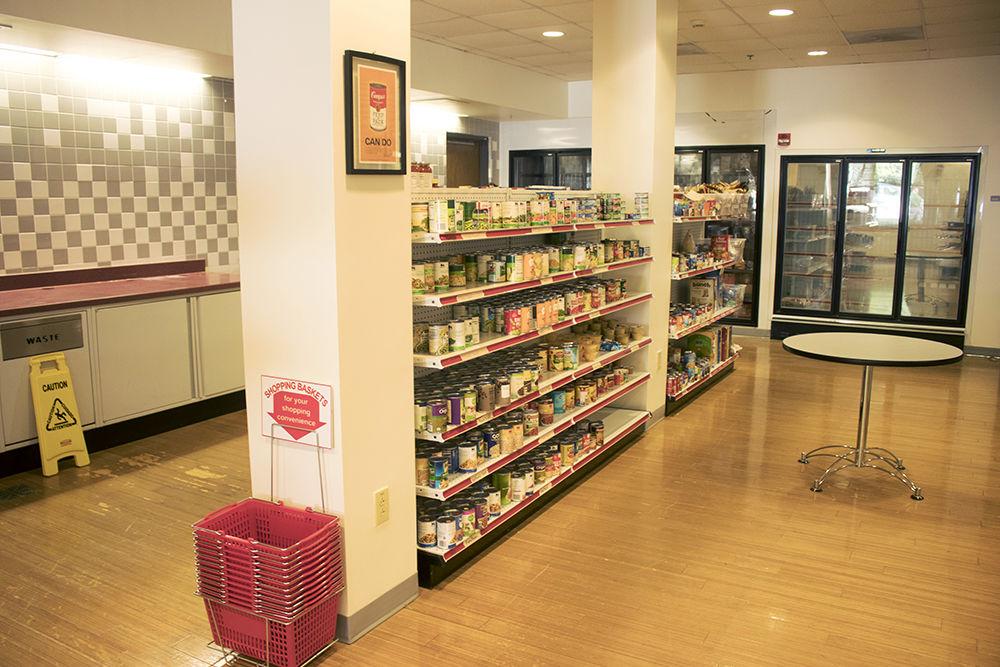Since Pack Essentials was created, students who have benefited from this program and the Feed the Pack food pantry are providing feedback and still finding solutions for food insecurity.
Since the program started in 2018, no studies have been conducted looking into the long-term effects of the program, such as graduation rate, but faculty in charge of the program are receiving general feedback, according to Mike Giancola, student ombudsperson.
Mary Haskett, professor of family studies at NC State, is collecting initial feedback from students who receive food from Feed the Pack in an effort to learn more about food issues at NC State. Jayna Lennon, a fourth-year studying political science and Arabic and executive director of the Feed the Pack student leadership team, spoke about the information collected.
“In recent years, I think this food insecurity among college students has just really started to be talked about,” Lennon said. “We’re just scratching the surface now with research studies to try to figure out how many people are affected by these issues. Thankfully, Haskett has researched what it is like specifically at NC State.”
Giancola said students have complimented the responsiveness of the program. Students meet with him to receive help under Pack Essentials. He can also help students in the event of a food or housing emergency with solutions such as the meal share program, which allows students with meal plans to donate unused guest swipes to students in need.
“A student can submit their Pack Essentials application in the morning,” Giancola said. “I reach out to them and find out they need guest meals, and we have meals on their card by noon, and they’re eating lunch in the dining hall. So, the whole process is intended to be very responsive to students.”
Even though Pack Essentials has better equipped NC State to better help students who are struggling, according to Giancola, there are still many ways to improve.
Haskett said Feed the Pack needs more variety and fresh foods available for students.
“You will see empty shelves, you will see a lot of canned goods, massive amounts of peanut butter and mac and cheese,” Haskett said. “All of those things are good, but if you had to rely on that for more than two days, your nutrition would hurt. It’s limited, and I’m a huge fan of Feed the Pack — I’m going tomorrow afternoon to volunteer — but as a university, we can’t rely on that as being the solution.”
Lennon said as of Nov. 18, Feed the Pack will start to serve a limited supply of fresh produce.
“We’re trying to focus on expanding the variety of foods that we provide and make sure that we provide healthy foods that people are wanting to eat, things that are very normal and not stigmatized,” Lennon said. “We’re trying to get more culturally appropriate foods in the pantry, because we know a lot of international students need it, and we want to make sure we’re providing what people are comfortable eating and what they like eating.”
Haskett said NC State and donors should become partners to make the food pantry able to distribute fresh fruits and vegetables and sources of protein. Haskett also said she finds Feed the Pack to be an incredible organization lead by students.
Giancola said 356 students submitted Pack Essentials applications in 2018, and 100 of the applications came after Hurricane Florence. His main concern is that not enough people are applying for Pack Essentials, considering that 14% of the student body was reported to experience food insecurity according to a survey conducted last year, which is far higher than the number of applications.
“We’re not meeting the need,” Giancola said. “There’s still students out there that we know that are experiencing food, housing and financial insecurity.”
Haskett said faculty and administration should try to notice students who are hungry and refer them to Pack Essentials.
“Faculty need to be including a link to Pack Essentials on their syllabi, and I think that they need to be open to conversations with their students about food and housing and be prepared to refer students to the Pack Essentials if they have those needs,” Haskett said.
Giancola said the nature of the NC State Wolfpack community is what helps those with food insecurity.
“Issues of food, housing and financial insecurity are not unique to NC State,” Giancola said. “This is an issue that is being addressed at college campuses all over the country. What I will say about the NC State response is that we have really worked together as a campus community … It really speaks to the NC State spirit that we’re a community that tries to take care of its own, and we understand the importance of this issue.”




